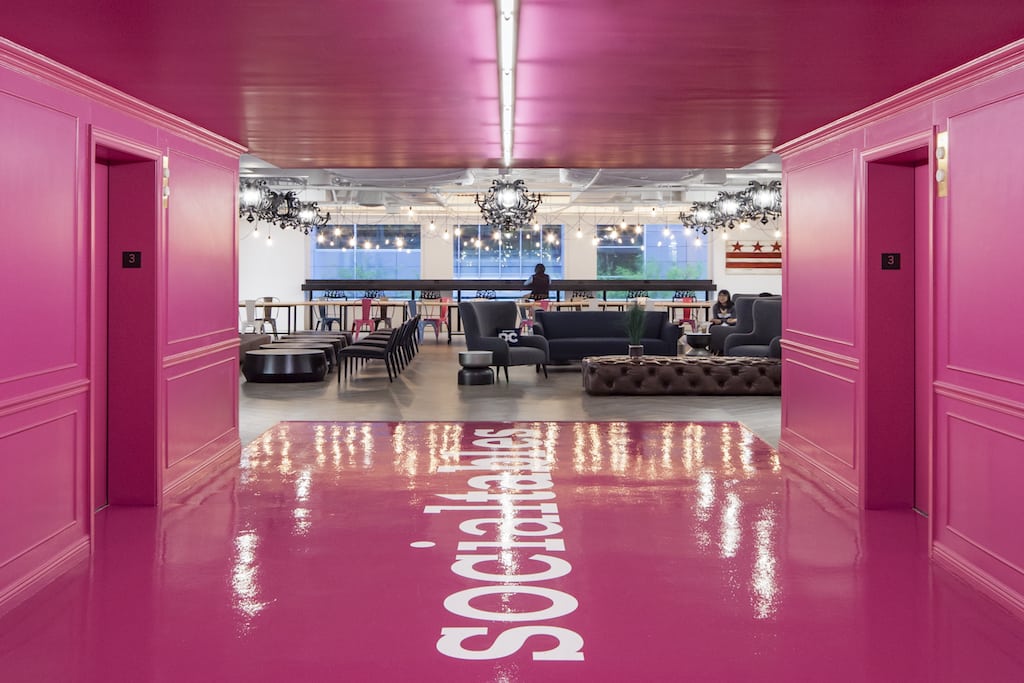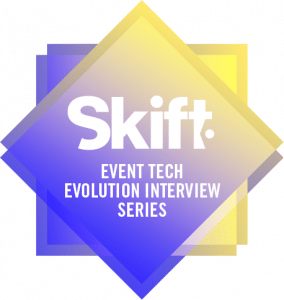Skift Take
A lot of work needs to be done to improve the ability of hotels to sell to planners on smarter and more efficient ways. A variety of event technology companies are working on it, but the process of building trust among stakeholders will likely take some time.
Event technology has helped revolutionize the process of planning a meeting along with the experience for attendees.
The space is crowded with competing products and platforms, however, adding an additional layer of complexity for planners.
In our new Event Tech Evolution Interview Series, we’re talking to leaders at the companies defining the future of the event technology space with an eye on the trends and disruptions to come. You can read all of the articles in the series here.
Technology isn’t always a cure for the complexity of planning a meeting, which we’ve explored before at length.
As companies develop platforms to better connect buyers and sellers, along with the staff charged with putting on an event, it’s likely that a more connected future will fix some of the roadblocks that are inescapable right now.
For Dan Berger, founder and CEO of event tech company Social Tables, solving the problems of a complex distribution landscape have been the priority since launching the company in 2012. Event tech is undergoing a change from complex, older digital systems to more streamlined platforms, but there is still a long way to go before legacy systems have powerful alternatives,
“The future is choosing not just the software partner, but a software-platform partner that can transform they way they do business and help them be more successful,” said Berger. “And many hotels realize that building doesn’t make sense anymore, so they’re buying technology.”
Skift spoke with Berger about what figuring out what his customers really want, why hotels need more efficient ways to sell to planners, and how better collaboration tools may become the sector’s most important innovation.
Skift: There’s a lot of innovation going on in hotel and meeting space distribution. What is Social Tables up to this year?
Dan Berger: We’re one of the most interesting companies in this sector because of the thought leadership we put out there. Not just like, “Oh, the trends for tomorrow.” None of that stuff, but really cool things that are tangible like, “What can meeting planners do to get ready for automation.” One of the trends we’re thinking about is what will meetings look like in 30 years. Things like that really make people think.
So we do that regularly. I really don’t want to make [this conversation] about features. I think it’s a coming of age for our product; from six different [products] that we would sell, we’re coming out with two platforms: an event sales platform and event services platform. And that means pre-awards, so everything you do before you book a meeting, and then post-award, after you book the meeting.
So two products. The first product is to help you get better event leads and close them faster. The second one is to make sure the events you have are successful and that the clients come again.
Skift: That seems like an elegant approach, especially since so many event tech providers offer close to a dozen different products. What are your thoughts on the hotel distribution angle right now? We’ve seen recently with the Marriott news that large hotel brands are interested in refining their group and meeting business.
Berger: At the end of the day, hotels need to do whatever’s going to get them the most business. And the problem is that, traditionally, there hasn’t been a lot of choice for hotels. And it’s a very complicated industry with all the different stakeholders. Hotels really make decisions like small businesses, for the most part, because they are small businesses. They’re like a restaurant. Not in terms of revenue, but in terms of how mindful they are of the cost structure. Some owners are more sophisticated than ever before, and they now have sophisticated portfolios.
I don’t think hotels have come to a point where they realize that software is actually not a commodity.
The future is choosing not just the software partner but a software-platform partner that can transform they way they do business and help them be more successful. And many hotels realize this: building technology doesn’t make sense anymore, so they’re buying technology.
They’re making bigger bets on the partners they choose, and we have been fortunate enough for work with all the biggest chains in the world. We have master services agreements with all the chains in the world; we’re about 35 percent penetrated in full-service hotels in North America.
Skift: So it’s more of building the relationships to demonstrate what the platforms can do than just developing products you can sell.
Berger: And that’s why it’s a long-term process. It’s a long play. It’s not like for Social Tables it’s just like, “Oh, you know, we sell as much software as we can.” No, this is like step one for us to really build a relationship with the hotels, to make sure we’re trusted partners and really get into helping them make more on the groups and events and meetings side, after proving our worth on the back-of-the-house services side.
Skift: So how do you prioritize the right tools to develop, particularly when other players in the space offer such a wide variety of services?
Berger: I’ve spoken to so many customers and I always say, “Hey, you know, what do you think we should work on? How can we enhance our solutions?
They always say, “I don’t know. I don’t have any ideas.” And that’s so funny, because if you were asked what you want to see on something like Instagram, you’d say something like, you’ve got to give me the ability to add or remove some of these filters or reply to comments or something. As consumers, we have a ton of feedback to give. But in the enterprise world, it’s harder.
The point I’m trying to make is that, when I talk to customers, they are so focused on delivering the best possible experience for their clients that they don’t realize how much more can be done with the software they use. And when you give them features, that you and I, who are using tech every day and to the maximum ability … that seem trivial to us, it’s huge for them.
For example, our sales solution kind of helps hotels respond to our request for proposals quicker, because there’s just so much spam. So we created, essentially, an automated request for proposals response tool that creates customized and trackable request for proposals responses. And giving them the ability of out the box lead scoring and lead enrichment is an incredible gift you can give them.
Skift: When you look ahead, what do you think will be transformative for event tech?
Berger: An event has so many layers, so many intricacies, so many complexities, and so many stakeholders that it’s very amenable to sharing and collaboration and permissioning and all those things that we take for granted. So I think collaboration is huge, especially from the supplier side. Whether it’s handing off a proposal or passing an event from one team to another, or inviting the different vendors as a client. Because there’s just so many people touching the meeting and event. That’s a big thing that’s not going anywhere and will only get better.
For example, at Social Tables, one of the features we really wanted for our search engine is being able to share your RFP (Request For Proposal) card in our search engine. For example, if [a CEO] wants to have a meeting somewhere and he asks his meeting planner to find a place, he doesn’t want look at an Excel spreadsheet. He doesn’t want the planner to create a PowerPoint for him. He doesn’t want a long email with all the options. He wants to compare all the different options [like on a consumer online booking site].
And again, this is important because meetings are super collaborative. So many people are involved and collaboration’s huge. Sorry I didn’t mention virtual reality or something like that.
Skift: That’s actually a good point; so much of the discussion is on experiential gimmicks instead of tools that streamline the process of planning and executing an event.
Berger: I’m going to geek out for a second, but I think APIs (application programing interfaces) can be transformative. We were the first [event tech] company to release our API to the public and shift how we develop our network around it.
So we had developers all over the world … not a lot of them, but they were building up our software and using our API. And we supported them. So I think public APIs and open APIs are probably the longer-term turn. That will certainly happen. But I think before any of that happens, the trust we talked about has to happen between all the different partners in the ecosystem.
That’s my goal, because I want to see [both planners and hotels] be successful. You can’t be everything to everybody and too many companies are trying to do that.
Have a confidential tip for Skift? Get in touch
Tags: event tech evolution, social tables
Photo credit: The Social Tables offices outside Washington, D.C. Social Tables

